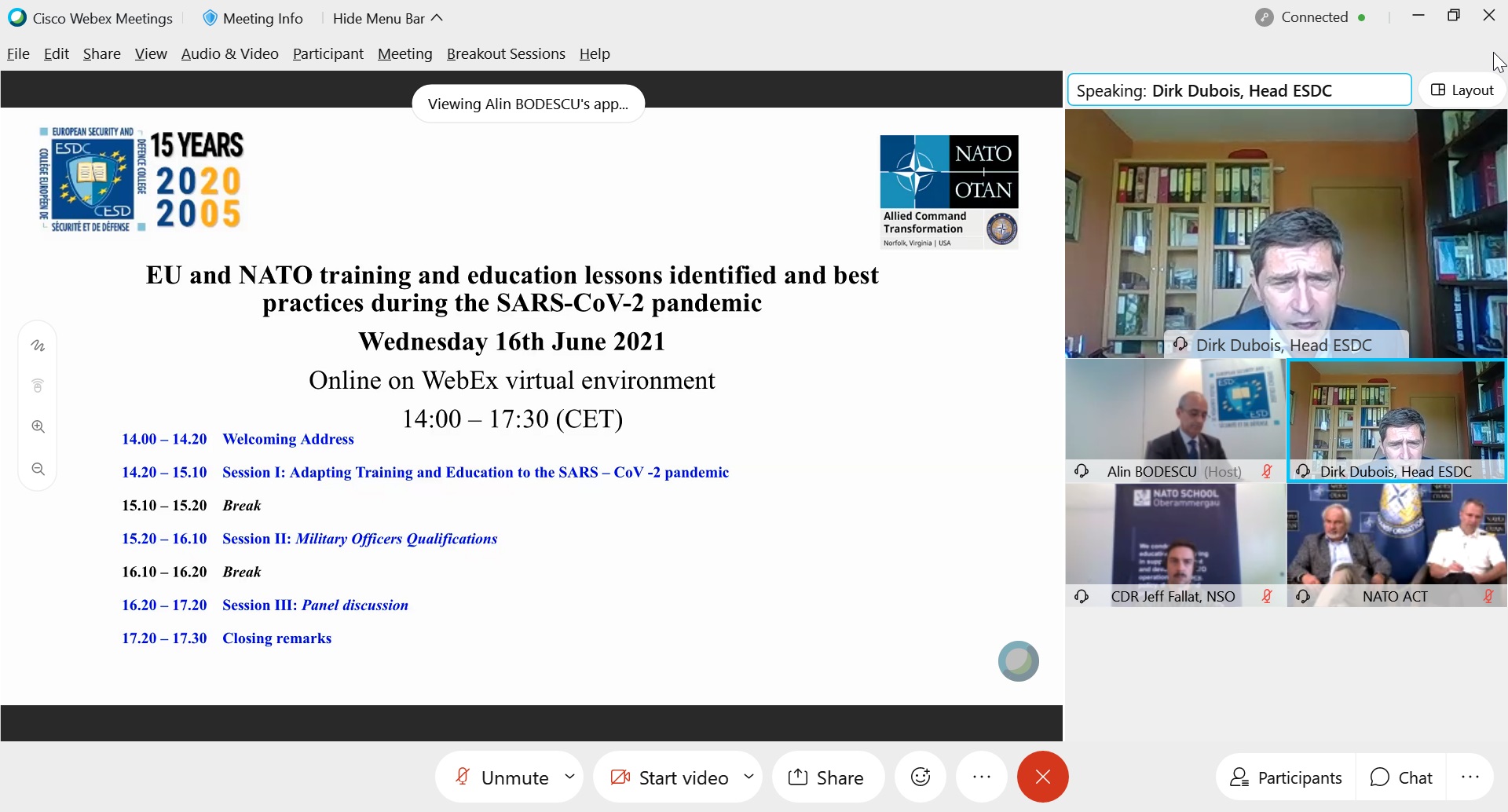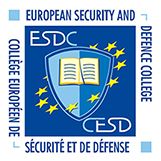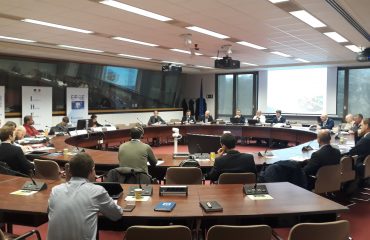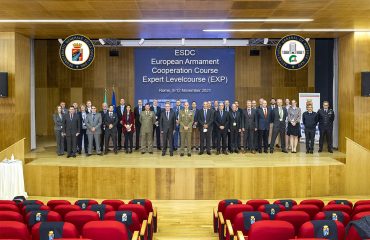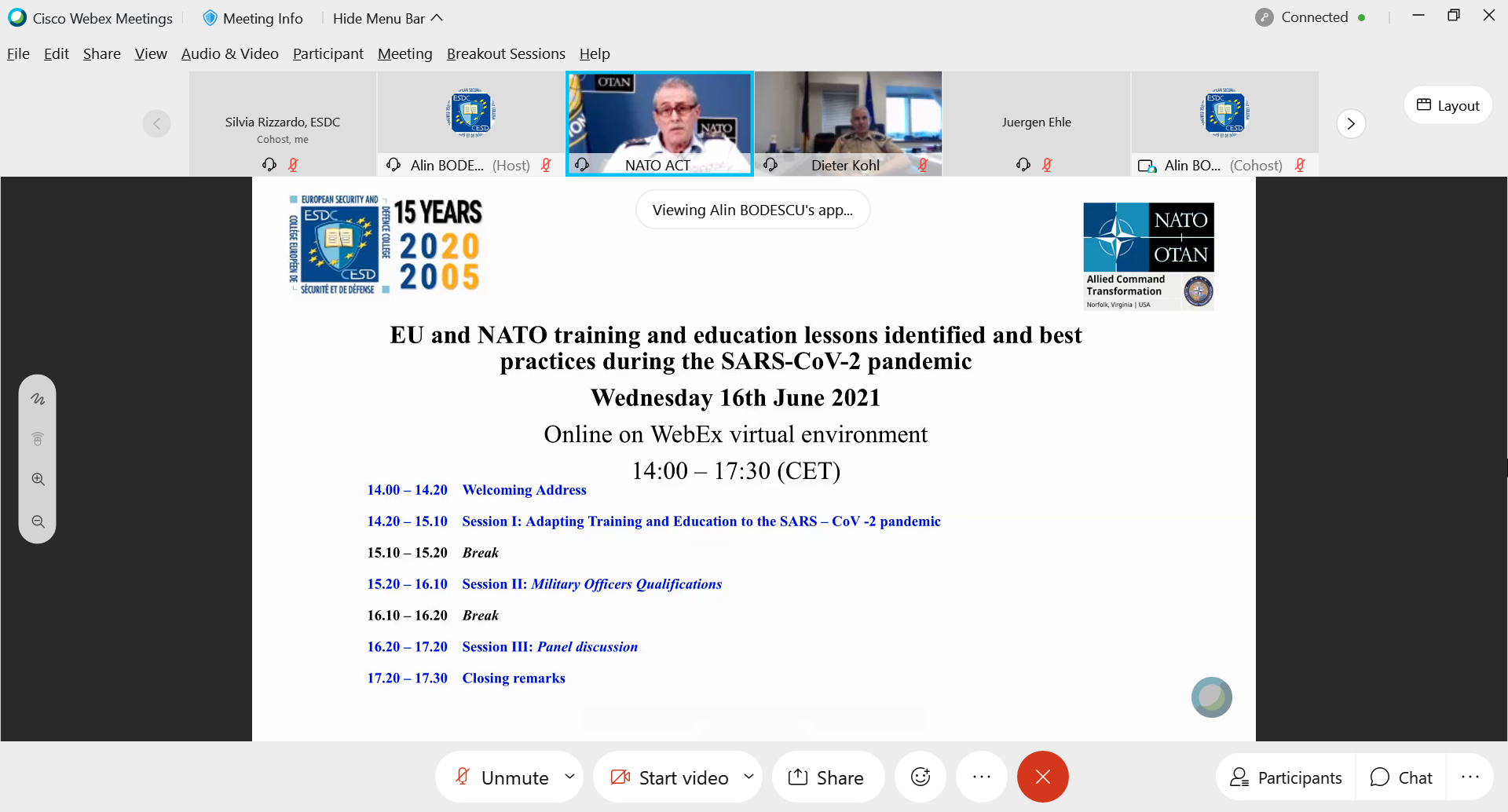 The seminar was attended by more than 150 participants from EU and NATO countries. Specifically, these participants were from centres of excellence, PfP training centres and national and multinational training and education institutions. The seminar was structured in three sessions. The first session concerned covered the issue of how training and education had been adapted as a result of the SARS-CoV-2 pandemic. The second focused on the Military Officers Qualification. The last session offered a platform for discussion on outstanding issues related to the overall theme.
The seminar was attended by more than 150 participants from EU and NATO countries. Specifically, these participants were from centres of excellence, PfP training centres and national and multinational training and education institutions. The seminar was structured in three sessions. The first session concerned covered the issue of how training and education had been adapted as a result of the SARS-CoV-2 pandemic. The second focused on the Military Officers Qualification. The last session offered a platform for discussion on outstanding issues related to the overall theme.
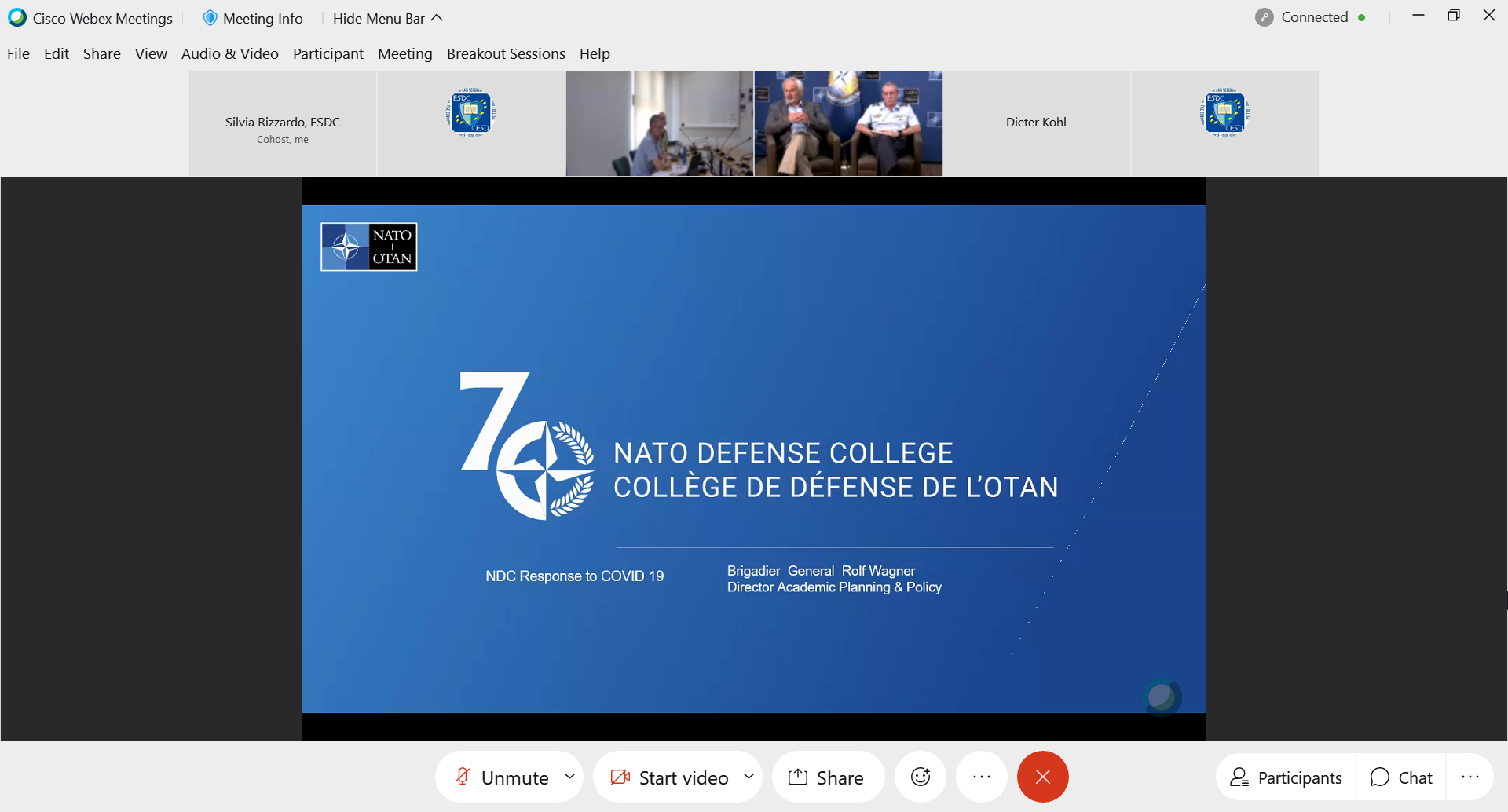 In the introduction, EEAS and NATO ACT representatives provided a state of play and a review of future EU-NATO cooperation at all levels. Specific focus was on strengthening ties through training and education.
In the introduction, EEAS and NATO ACT representatives provided a state of play and a review of future EU-NATO cooperation at all levels. Specific focus was on strengthening ties through training and education.
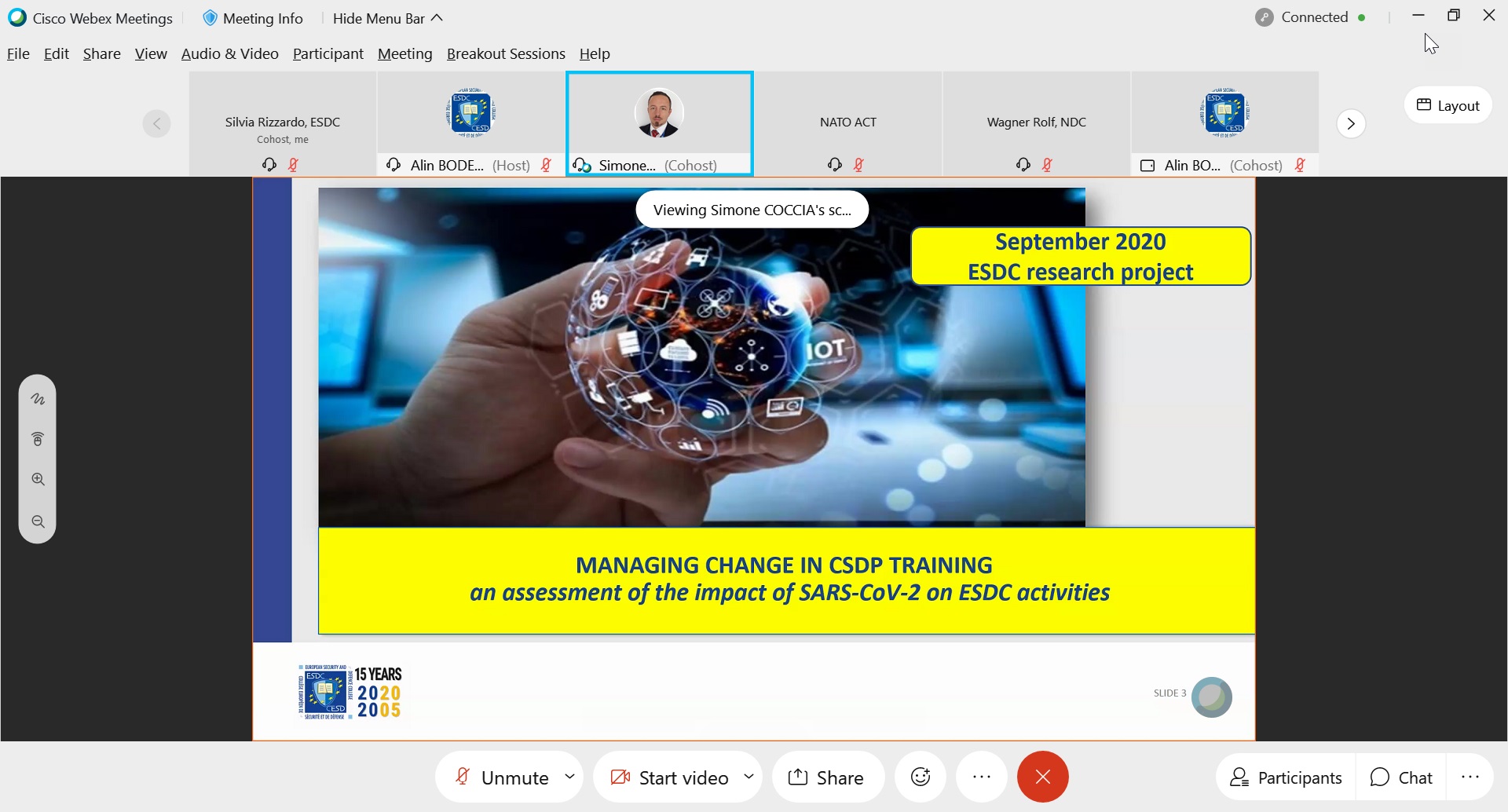 In the first session on the adaptation of training and education to the SARS – CoV -2 pandemic, the ESDC presented highlights of its “Managing Change in CSDP Training” research project, which aims at improving the efficiency of virtual courses. Subsequently, Maynooth University (National University of Ireland), the NATO Defence College and the NATO Joint Force Training Centre presented the lessons and best practices that they had identified.
In the first session on the adaptation of training and education to the SARS – CoV -2 pandemic, the ESDC presented highlights of its “Managing Change in CSDP Training” research project, which aims at improving the efficiency of virtual courses. Subsequently, Maynooth University (National University of Ireland), the NATO Defence College and the NATO Joint Force Training Centre presented the lessons and best practices that they had identified.
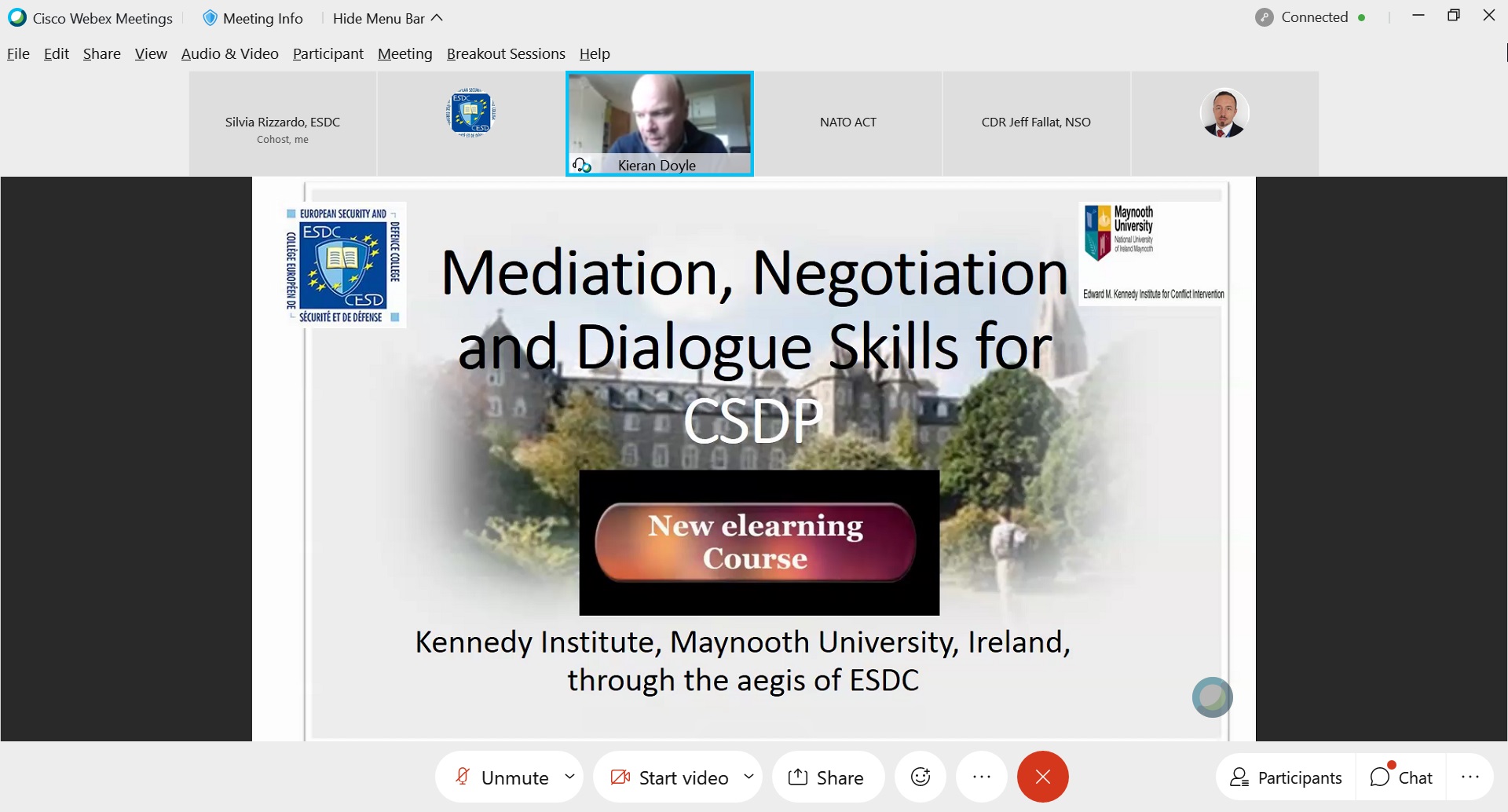 In the second session, the ESDC presented the recently concluded Sectoral Qualification Framework for the military officer profession. It highlighted the benefits for Member States in implementing the qualification at national level. NATO Allied Command Transformation briefed the audience on the latest developments in the field of human capital. These included the professional doctorate and the strategic leadership initiative.
The last session offered opportunities for discussion on key lessons and best practices. Examples include the costs and efficiency of learning in a virtual environment, the impact of COVID-19 on the link between individual training / education and collective training and the possible way ahead.
Concluding the seminar, Mr Dirk Dubois, the Head of the ESDC, emphasised the importance of returning as soon as possible to face-to-face training, which is the only format that can genuinely facilitate one of the key ESDC objectives: to help promote professional relations and contacts among training and education participants.
In the second session, the ESDC presented the recently concluded Sectoral Qualification Framework for the military officer profession. It highlighted the benefits for Member States in implementing the qualification at national level. NATO Allied Command Transformation briefed the audience on the latest developments in the field of human capital. These included the professional doctorate and the strategic leadership initiative.
The last session offered opportunities for discussion on key lessons and best practices. Examples include the costs and efficiency of learning in a virtual environment, the impact of COVID-19 on the link between individual training / education and collective training and the possible way ahead.
Concluding the seminar, Mr Dirk Dubois, the Head of the ESDC, emphasised the importance of returning as soon as possible to face-to-face training, which is the only format that can genuinely facilitate one of the key ESDC objectives: to help promote professional relations and contacts among training and education participants.
